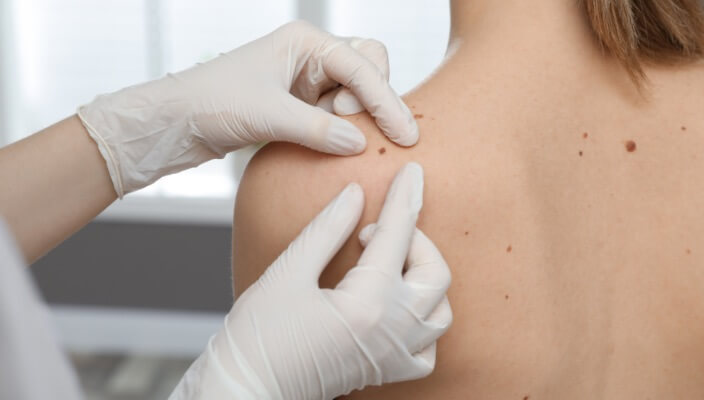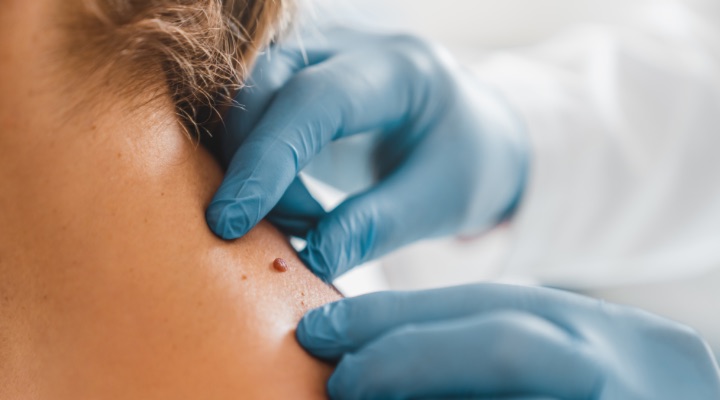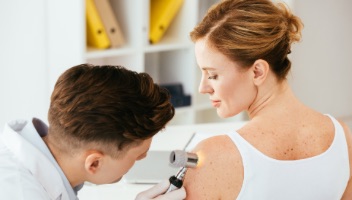Your Essential Guide to Preparing for a Dermatology Appointment
How to Prepare For A Dermatology Appointment
 So you’ve made your first ever dermatology appointment. Whether you are going in for your annual skin cancer screening, to get a suspicious spot checked, or for a cosmetic reason, such as alopecia or acne, there are certain steps you should take to optimally prepare for your dermatology appointment. Here are our expert tips.
So you’ve made your first ever dermatology appointment. Whether you are going in for your annual skin cancer screening, to get a suspicious spot checked, or for a cosmetic reason, such as alopecia or acne, there are certain steps you should take to optimally prepare for your dermatology appointment. Here are our expert tips. Preparing for your first dermatology appointment is important because it ensures everything goes as smoothly as possible and that your doctor is up-to-date on the status of your overall health and wellbeing. Use our dermatology appointment preparation checklist to make sure you are ready.
1. Collect Some Health Information
If this is your first dermatology appointment with a board-certified dermatologist, then it is important to compile some background information on your health and why you scheduled the appointment.
Your dermatology provider will be meeting you for the first time, so make sure to share vital information on your skin history, surgery history, past treatments, current medications and supplements, and anything else that might impact the health of your skin.
We recommend putting together a helpful list you can refer to before your appointment so it’s all ready to go when you get there.
2. Share Photos of Previous Skin Concerns
Whether you struggle with psoriasis, eczema, rosacea, acne, or something else, it’s important to share photos of previous flare-ups. This visual aid is especially valuable if your skin is clear at the time of your appointment but gets worse on a regular basis.
Furthermore, if you have regular flare-ups but aren’t sure what the condition is, your doctor can help identify the skin condition through photos.
3. Compile A List of Questions
Do you have lots of questions about your skin, hair, and nails? Create a list of questions you’d like to ask your dermatologist in the weeks and days leading up to your appointment. Keep a small notepad on hand and write down the questions in case your mind goes blank when you’re at your appointment.
Remember: your dermatologist is here to help you better understand your skin, hair, and nails, so they’ll be happy to answer any questions you may have!
4. Wear Loose Clothing and Minimal Makeup
In many cases, your board-certified dermatologist may want to evaluate your skin to look for any suspicious spots or atypical moles. This may mean you need to remove some pieces of clothing, which is why it’s best to wear loose fitting garments.
Additionally, don’t hide any skin conditions with lots of makeup. Instead, we recommend coming to your dermatology appointment barefaced or with minimal makeup so your doctor can get an optimal idea of the health of your skin.
5. Remove All Nail Polish
In preparation for your dermatology appointment, remove all nail polish from your fingers and toes. The health of your nails is often an indication of your overall health. Thus, your doctor will likely want to examine and evaluate your nails.
Furthermore, many types of skin cancers and fungal infections can affect the nail beds, so it’s best to leave them clean and clear for examinations.

Schedule A Dermatology Appointment at Cumberland Skin
Whether you need to schedule a skin cancer screening, eczema treatment, acne treatment, or something else, our experienced team is here to help. Schedule a dermatology appointment today!
Featured Products
Check your local office for current stock!
Check your local office for current stock!
Related Blog Posts

- Skin Cancer
- Skin Exams
It’s time to face the facts: skin cancer can develop in individuals of all skin colors, including those with darker skin tones.
Read More
- Skin Cancer
- Skin Exams
In this blog, we’re covering what you need to know about five dangerous skin cancers, including basal cell carcinoma (BCC), squamous cell carcinoma (SCC), malignant melanoma, merkel cell carcinoma, and kaposi sarcoma.
Read More
- Skin Cancer
- Sun Safety
- Skin Care
If you’re unsure of how to effectively apply sunscreen, we’re here to help. Read our guide on when to apply it, how much sunscreen you should wear, how often to reapply, and more.
Read More


